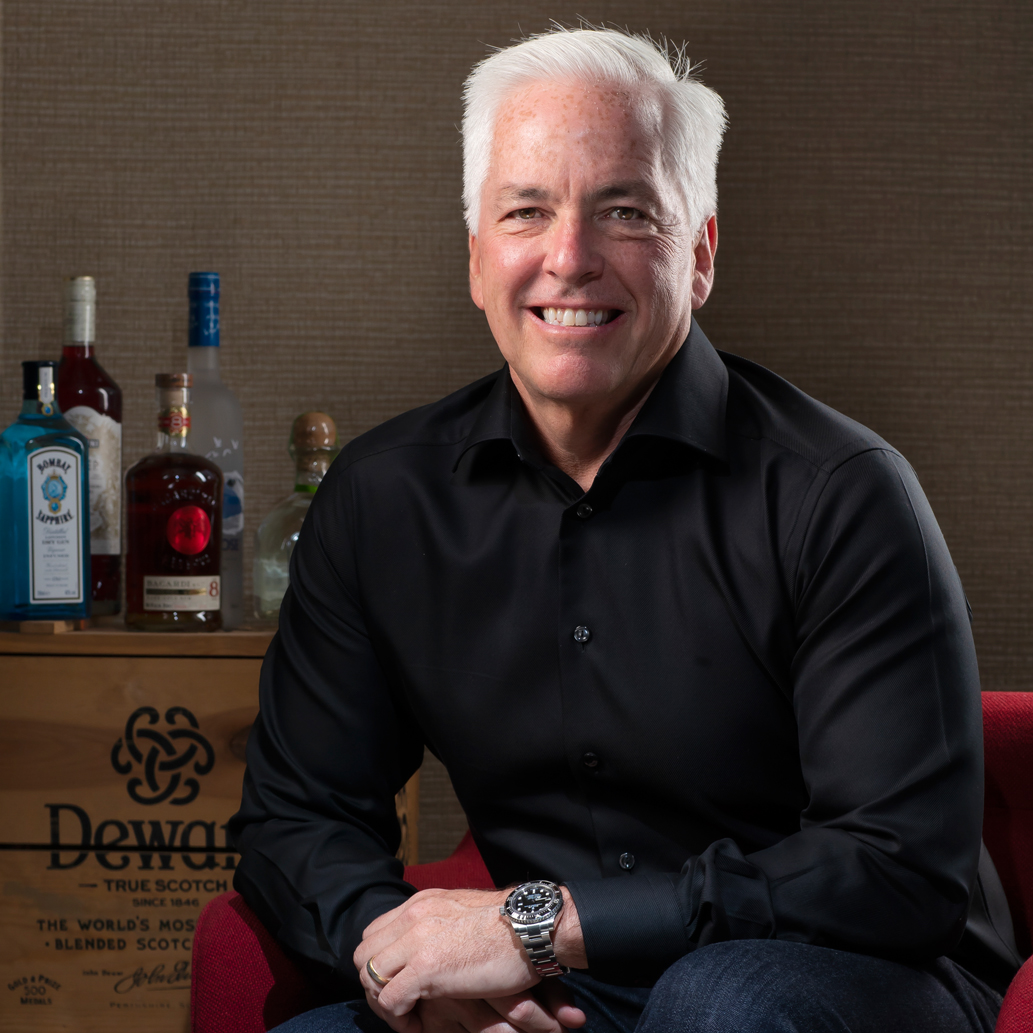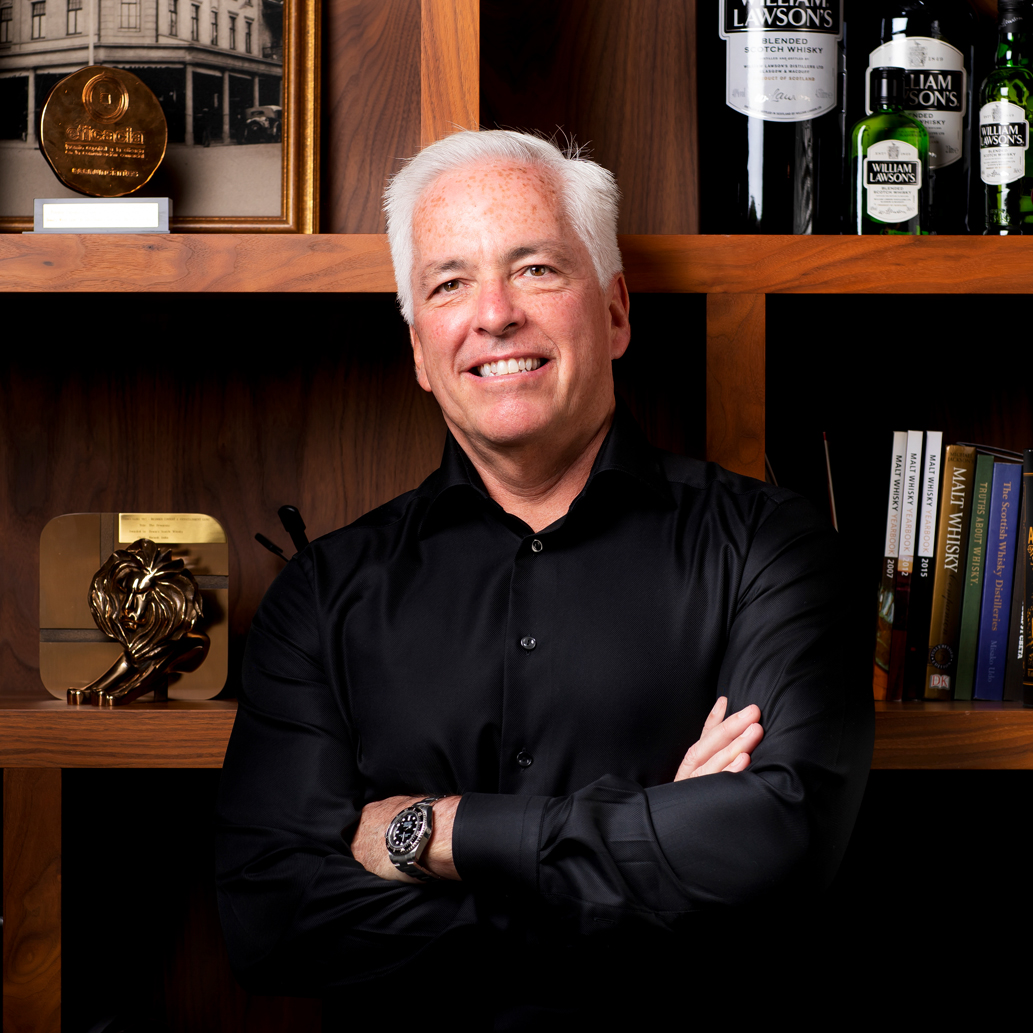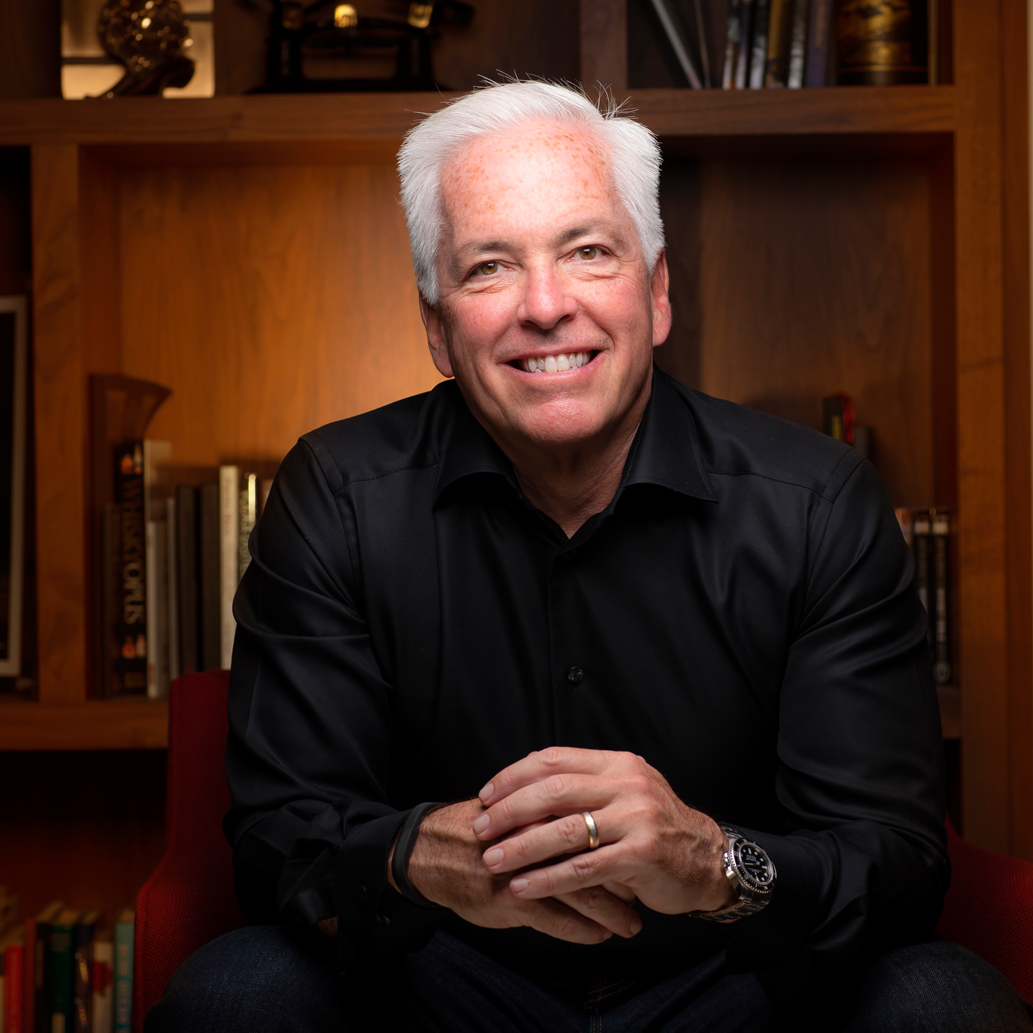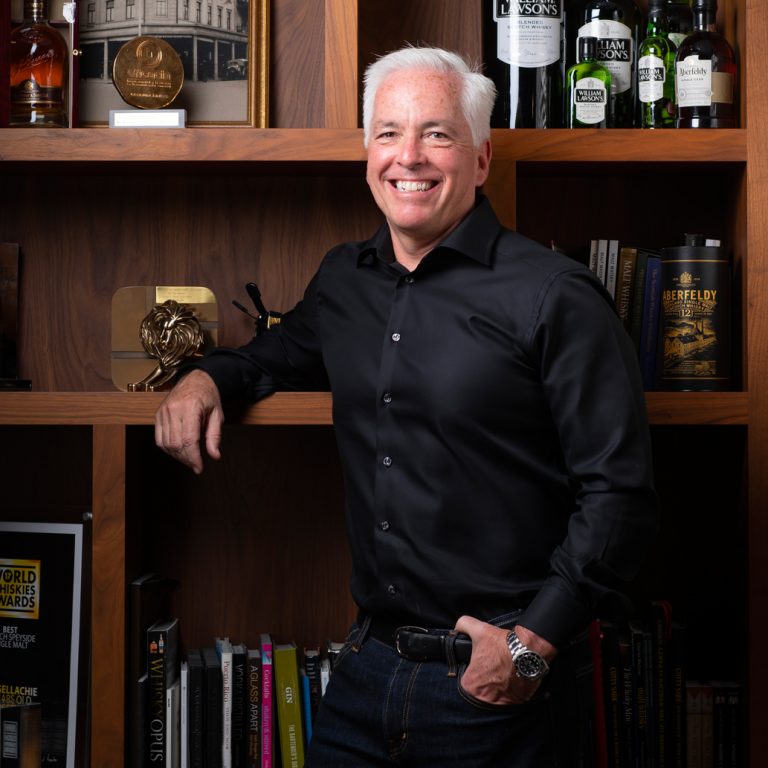Scott, tell us about your early life and your journey into a career in HR.
I’ve been involved in HR now for 34 years. It sounds like a very long time, but it has gone by very quickly. The first half of my career was mostly in retail, in the US, with companies that are well recognised as leaders in people and talent management. Dollar General had 4000 stores and I was their youngest ever VP, Human Resources and very lucky to work under their Chairman and CEO, Cal Turner Jr. who viewed people development as the most important part of his job. There, I also spent time leading store operations which ultimately enhanced my HR leadership skills and the ability to develop practical HR tools and programmes. Following that, I joined Sam’s Club, a $25 billion division of Walmart as their VP, People. Then a moment eventually arrived – actually it was about 17 years in – when I thought, “it’s time to broaden my career horizons”. An opportunity came up with DHL to lead creative people management on a global scale, and I was with DHL for just under seven years, as EVP, Global HR, and relocated to Germany. It was great to be immersed on a massive scale, with an international operation. Reflecting on this time, what it represented for me, above all else as a practitioner and an individual, was the opportunity to be immersed in cultures and people internationally. It was more informative and enriching than any learning module could ever be. I always urge people that, if they have the opportunity, living and working outside your home country is an incredible life-learning experience.

And then came the opportunity to join Bacardi. As brands and sectors go, this was quite a change of scene.
When I heard about the opportunity at Bacardi, obviously I knew the brand, but I knew very little about the company and its history, and so I carried out a bit of research and I was fascinated. The story began in Cuba, where Don Facundo Bacardí Massó revolutionised the spirit world, by creating rum as we know it today. The company survived many challenges, including prohibition and illegal confiscation of assets in Cuba. The leaders were forwardthinking and fearless, and were able to not just continue the business, but grow it to become the world’s largest privately-held spirits company. Seven generations later, the company remains family owned – and this is one of our great differentiators. We live and breathe the same cultural pillars from our early days which are all about being fearless, having a founder’s mentality and being a family. In fact, we don’t call Bacardi people employees, we call them “primos” which means cousins in Spanish. We come together, just like family, whenever possible, which is what our business is all about, celebrating moments that matter. It’s at our core to keep people communicating and sharing – even if people are working remotely – group chats are so much more rewarding than a solitary email.

You describe a compelling story. After working for so long in large corporates, do you think that you were seeking “family”? And what did you think your experience could bring to Bacardi?
Well, you might be surprised that when I was working for Dollar General, it was a tightly-held family company – likewise, when I was at Wal-Mart, the Waltons – the founding family – were still involved in the business. So working for a family company was not new for me. But the most compelling aspect was that, unlike my previous employers who had family involvement, but were publicly traded, Bacardi is 100 percent family-owned and remains private. As a matter of fact, our current Chairman Facundo L. Bacardi is the great-great grandson of our founder and even bears his name. Having that family ownership really allows each of us to take the business vision and translate it for our discipline. For me and the HR team, I’d like to make Bacardi the world’s most “personal” company and I can really understand and embrace how HR can improve capability and performance on many different platforms.

Explain the scope of the business and how it operates.
We have more than 200 brands and labels and sell in more than 170 markets around the world. The scale of the business lends itself to the opportunity to innovate, and knowledge sharing is becoming a significant accelerant to innovation. It’s important to keeping competitive and future-focused. What’s exciting for myself and the HR teams is that we see the results of our strategy and interventions really quickly, and when people can see direct positive impacts on the business, this gives momentum and builds confidence in the drive for change. It’s also very hands-on too, which I find particularly rewarding, as HR then becomes, not just a service deliverer, but a deeply integrated business partner. So, connectivity, the flatter workplace, collaboration and knowledge sharing is the combination to unlocking opportunities for the future.
What is the next stage in your HR plans?
Attraction and retention must surely be high agenda pointers. Unquestionably, we have attracted and developed the best people – and been rewarded by that – so we want to keep that momentum of talent going, keep that vibrant pipeline. Firstly, we have fantastic brands, so we work hard to connect the brand to our primo, right through to our customers and ultimately our consumer. We believe every primo is an ambassador for the company. It’s interesting because there are some companies that have rules about employees not using social media, but we love our primos to use social media as they’re all influencers and champions for our brands. In fact, every year we celebrate Founder’s Day on February 4th, and we host an initiative called Back to the Bar. We close our distilleries and offices and 7000 primos from around the world, go “Back to the Bar” to not only thank our customers, but to experience the latest trends and talk to consumers about their preferences. It’s a a big celebration around the world but also highlights the importance that, whether you’re in finance, HR, or IT, at the end of the day, we are all supporting the front line and each of us make an impact on our consumer in some shape or form. It’s the type of celebration that helps balance the hard work that goes into making our company great. We take our work seriously, but we do it with fun!
Another big focus for us is embedding our values and we have three F’s: Family, Fearless, Founder. As part of being fearless, we’re promoting innovation and the idea that it’s OK to fail, because challenging the status quo and taking risks are imperative values for future competitiveness. To support the three F’s, we’ve also eliminated performance reviews and have introduced what we call “Let’s Talk”, which encourages more regular discussion throughout the year, checking in, making sure we’re on track rather than a one-time, end-of-year review. The new process is achieving greater input and participation due to a more personal and relationship-oriented framework. Keeping that momentum going, we recently introduced an app called “Cheers”, which encourages people to give thanks and recognition to colleagues who have achieved something, or who you simply want to show your gratitude towards, because they have gone the extra mile. The Cheers notes are sent via text or email and are automatically copied to line managers. It’s that type of innovative, personal approach that really makes a difference. When eople join an organisation, they are usually introduced to people, shown where the water cooler is. First two days at Bacardi, we share the history – about the family and our brands – you meet all of the people that will be important to you, and we also teach you how to mix six, classic cocktails, so you can go home and share your new skills with friends and family.
So that’s where you start and, from that moment on, every day is a learning experience and, like a cocktail, we keep it fresh and mix it up with a rotation of development programmes. We have a series of initiatives for primos at all levels and, at the highest level, we have created a programme in conjunction with Harvard Business School called Emilio Bacardi Harvard Business School Leadership Programme. It’s tailored specifically to us, case studydriven, with inspirational professors and guest speakers aimed at developing our next generation of senior leaders within the company. Leadership development and support is paramount to us because we’ve seen time and again that you reap what you sow. But no business can just rely on the tried-and-trusted. A study from Stanford University revealed that by 2030, 80 percent of the jobs we know today won’t exist. So how do we stay relevant and how do we innovative so that, by then, we have the right people in place with the right capabilities, who are great leaders?
The Bacardi brand itself must be hugely useful to attract young talent.
Yes, it’s obviously a great calling card, but you have to back that up, once the honeymoon period is over. We keep people excited, always encourage them to think outside the box in terms of their career and provide plenty of opportunity to live and work in different geographies and switch portfolios. It’s important to not be complacent, even if you’re appearing to do well in attraction and attrition, and keep saying, “what can we do better”? Our turnover around the world is in single digits, we have a young demographic and probably around 12 percent of our population has 20 or more years in the business, which is a dynamic combination. I’ve met a number of people who have 40-plus years and they look so young and healthy. Incidentally, we’re great advocates for a healthy life, and relating that to our business – our mantra “One Drink at a Time”, has multiple meanings. It’s important that you take care of yourself because you’re in an entertaining centric industry. We don’t just provide subsidised gym membership, although those are well received, we listen to people about their mental and physical wellness and are open to supporting different initiatives. In terms of attrition, we have heightened sensitivity towards a tick up, but you should never try and hold onto people if they want to leave. In fact, we have created our own internal search team called BEST, Bacardi Executive Search Team. Their role is to source and select internal and external talent for Bacardi, but they also support our colleagues when they are looking for their next move.
Work/life balance, it’s become a bit of a cliché, what does it really mean?
Agreed, I’ve rejected the phrase. I think “work/life fit” is more realistic and discernible, and what’s right for one may not be right for another. Besides, we don’t use a lot of corporate words, we’re just very practical and realistic. We like to help people tailor the right programmes for themselves, rather than prescribe a work/life ratio. This way they can grow into the best person they can be and prioritise their time accordingly. For example, our sales team and brand ambassadors; we often talk about them working two jobs because they may come in to the office during the day, but then need to go and visit their customers in bars and restaurants at night. It’s not sustainable, so we want to give them the flexibility and responsibility to manage their time and resources in ways that work for them and deliver back to the business. When you think about it, if you want to really strive for a career as an executive – you, and your line manager – may need to trade-off some things, like not coming in to the office every day, or if you need to stay closer to home, that’s a trade-off too.
Another phrase that can end up looking clichéd is corporate and social responsibility.
It’s important that it doesn’t end up seeming like that. Without question, it’s not just that we take it seriously, it is complete and heartfelt. Remember, Bacardi is a family, their name is on the products. Of course, that means not compromising on quality, but we are also aware of our impact, and we’ve been recognised for our work around water and plastics. And from the community driven, grass-roots level to our efforts on an international scale, we will always do the right thing. When Hurricane Maria hit Puerto Rico – which is where we make most of our rum – we reacted very quickly. Our president of the region, Ignacio del Valle, had only just been appointed to the role and within two weeks, there was an earthquake in Mexico and the hurricanes hit Puerto Rico. Commercial flights weren’t flying to the country, so we organised a plane to Puerto Rico with food supplies and essential resources; water, blankets, generators and sanitation, and a number of our colleagues helped out. Our support of recovery efforts continues today, more than a year after the storm.
How would you define what culture means for Bacardi?
That could fill many libraries, but we’ve distilled it down to the three F’s I mentioned earlier. We encourage our people to be fearless and challenge and question everything, and not to be afraid of making mistakes. In fact, we want people to celebrate mistakes, learn from those and go forward with that knowledge. You can draw a line from our people today to those in our history, who were fearlessly entrepreneurial. We have a phrase that allows for this behaviour within the context of our business called; “Freedom in the Framework”, because with freedom comes accountability and responsibility and we’re still all expected to deliver on our plans. Next, we have “Founders Mentality” which I really love because the tag line is “Think Like a Founder”. But it’s easier to say than practice, so we make it a two way street, as we listen to people and take heed of what we hear. A case-in-point that rang out was the result of a pulse study we conducted internally that told us decisionmaking was too slow. We said; “tell us where”? There were some policies and procedures identified, so we eliminated those, but we increased increased individual responsibility. Budgets is a perfect example where we’ve made people more accountable, how they decide to run it, that’s their business, as long as they deliver on plan. Finally, that brings us to Family, where the most important pillar is trust and being honest and open and, like a family, nobody has a free pass, you take care of each other, but you also have a strong sense of accountability.
What are the business plans for the future and the key challenges ahead?
As I said, we want to make the next ten years the best ten years. We’re placing four big bets: Investing in the most attractive markets and brands, owning the on-trade, where consumers fall in love with our brands, reigniting our marketing to be more relevant and creative, and digital commerce and innovation. All of these require having the right people, in the right places, to look after our iconic portfolio of brands. So, you have to have the right people and that’s a big challenge you cannot take on half-heartedly. A quote that really strikes home for me was from our Global Head of Talent, John McCusker – I call him our talent guru – he says, instead of asking; “who’s ready now”? ask, “who’s ready enough”? That takes on real meaning when you consider our mission, which is to double our business over the next ten years.
Look at our emerging markets for example; they present a huge opportunity for us and we have a lot of expertise. Our CEO, Mahesh Madhavan, is from India and we believe it’s important to be in harmony with the locality. We are expanding in South Africa and we always aim to recruit and grow talent locally, but when you grow rapidly, you don’t always have the right people to fill the right roles at the right time. So we introduced “Bacardi Ready” which is a fast-track programme for new recruits to make their own way in the business. Then beyond that, we have Advanced Bacardi Ready, which is a series of more tailored, learning and development programmes, to take them where they want to go. This supports our goals of having local leaders leading local markets, plus setting up a robust succession plan. It’s important to be fully committed to developing talent within the business. And finally, we like to think of ourselves as a small company, with big brands. As a leader, it’s critical to maintain a learning mindset.
What are you thinking about right now?
I’m telling you my career story, and so I’m subconsciously thinking about our succession planning. Do we have the right talent, the right leaders coming through that are capable of leading tomorrow in the changing world? And how do we make sure we’re doing all the right things to prepare people for that? I’m also thinking about our consumers, that relationship and making sure that those links remain strong. Then there are questions about what we represent as a brand and remaining exciting and relevant. These have to be continuously considered because, however successful you appear to be, you can never be complacent. We are a company that has survived and thrived during all kinds of transformation and turmoil over the past 157 years, but I believe if we remain true to our values, the future is a very exciting place for us.












